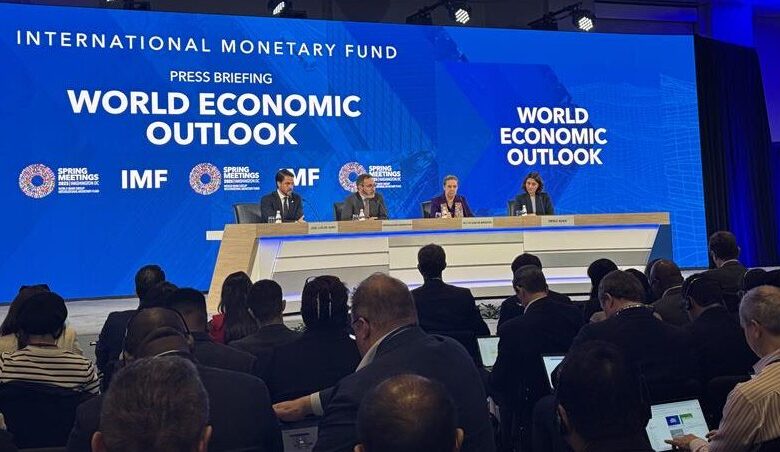Global public debt to surpass 100% of GDP by 2030 – IMF

The International Monetary Fund (IMF) has issued a warning about the rapid increase in global public debt, urging countries, particularly emerging markets, to implement stronger fiscal policies to mitigate risks and stabilize their economies.
According to the IMF’s latest projections, global public debt is expected to rise by 2.8% in 2025, more than double the 2024 estimates, pushing overall debt levels beyond 95% of gross domestic product (GDP).
If current trends persist, public debt could approach 100% of GDP by the end of the decade, surpassing the record highs seen during the COVID-19 pandemic.
Policy Shifts and Uncertain Economic Conditions
The IMF highlighted that recent major policy shifts, including a wave of U.S. trade tariffs and retaliatory measures by other nations, have increased financial market volatility, weakened global growth prospects, and heightened economic uncertainties.
“These shifts are occurring within a context of rising debt levels and strained public finances, with many governments facing additional spending demands, particularly in defense. The combination of rising yields in major economies and widening spreads in emerging markets further complicates the fiscal landscape,” the IMF stated.
Given these pressures, global fiscal policy faces critical trade-offs:
- Reducing public debt while maintaining economic stability.
- Building financial buffers to withstand external shocks and uncertainty.
- Meeting urgent spending needs, despite higher financing costs and slower growth.
Debt Crisis Scenario: A Worst-Case Projection
The IMF’s Fiscal Monitor debt-at-risk analysis, based on data through December 2024, presents a severe worst-case scenario where global public debt could reach 117% of GDP by 2027, marking the highest level since World War II.
This estimate exceeds baseline projections by nearly 20 percentage points, emphasizing the escalating risks tied to slowing economic output, weaker revenues, and increased spending pressures.
In addition to rising tariffs, geoeconomic uncertainties, such as heightened defense expenditures and fiscal support measures for vulnerable sectors, could further drive up public debt, with the Fiscal Monitor estimating a 4.5% GDP increase in medium-term debt under adverse conditions.
Urgent Policy Actions Needed to Stabilize Fiscal Outlook
The IMF emphasized that countries must put their fiscal house in order, implementing robust fiscal frameworks to build public confidence and reduce economic uncertainty. This includes:
- Prioritizing debt reduction while maintaining flexibility to respond to external shocks.
- Strengthening fiscal buffers to manage future economic downturns and spending pressures.
- Adopting sustainable, long-term fiscal strategies tailored to each country’s specific economic conditions.
For nations with limited budgetary flexibility, gradual and credible fiscal consolidation plans should be implemented while allowing automatic stabilizers, such as unemployment benefits, to function effectively. Any new spending needs must be offset by revenue increases or spending cuts elsewhere.
Countries with greater fiscal capacity should leverage their resources strategically within structured medium-term plans, ensuring that fiscal support for businesses and communities impacted by trade dislocations remains temporary, targeted, and transparent.
By embracing fiscal discipline, policy transparency, and prudent financial management, nations can mitigate risks, strengthen their economies, and navigate the challenges posed by rising global debt.
What you should know
- As significant policy changes and heightened uncertainty reshape the global economic landscape, the fiscal outlook has worsened.
- To effectively navigate these challenges, governments should focus on building public trust, ensuring fair taxation, and managing resources wisely.
- By doing so, they can foster resilience and promote sustainable growth in uncertain times








